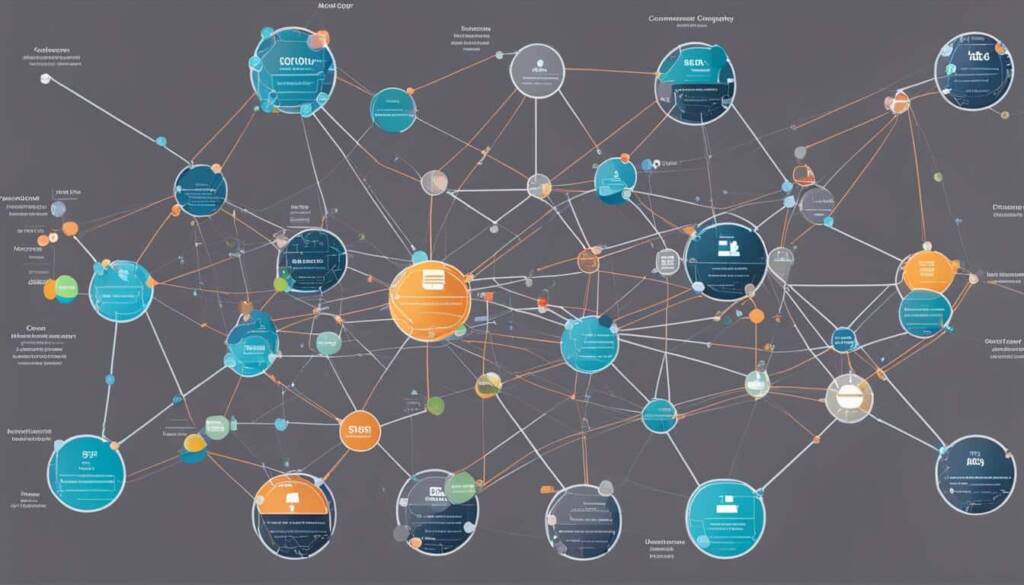Table of Contents
A customer relationship management (CRM) system is a combination of practices, strategies, and technologies that companies use to manage and analyze customer interactions and data throughout the customer lifecycle. The main goal of CRM is to enhance customer service relationships, improve customer retention, and drive sales growth.
CRM systems compile customer data from various channels and points of contact, such as the company’s website, telephone, live chat, direct mail, marketing materials, and social networks. These systems also provide customer-facing staff with detailed information on customers’ personal details, purchase history, buying preferences, and concerns.
The benefits of CRM systems apply to all types of organizations, from small businesses to large corporations. Some of the key components of CRM systems include marketing automation, sales force automation, contact center automation, geolocation technology, workflow automation, lead management, human resources management, analytics, artificial intelligence, project management, and integration with other software.
The four main vendors of CRM systems are Microsoft, Oracle, Salesforce, and SAP. Cloud-based and on-premises CRM systems are the two main types of CRM technology, each with its own advantages and considerations. CRM examples in practice include contact centers and social CRM. It is important for businesses to have a CRM system in place as it helps improve customer relationships, enhance productivity, streamline processes, and drive business growth.
Benefits of CRM Systems for Businesses
CRM systems offer numerous benefits to businesses across various industries. One of the primary advantages is enhanced customer service. With easy access to customer information, such as past purchases and interaction history, customer support representatives can provide better and faster service to customers. CRM systems also enable businesses to identify trends and insights about their customers through reporting and visualization features, allowing for trend spotting and more informed decision-making.
Automation is another key benefit of CRM systems, as they can automate repetitive tasks in sales pipelines and customer support, freeing up time for more valuable activities. Specific components of CRM systems, such as marketing automation, sales force automation, contact center automation, geolocation technology, workflow automation, lead management, human resources management, analytics, artificial intelligence, project management, and integration with other software, provide businesses with valuable tools to streamline processes and improve efficiency.
“CRM systems enable businesses to optimize operations, increase productivity, and deliver exceptional customer experiences.”
Additionally, CRM systems designed for social media platforms help companies foster customer relationships and monitor customer sentiments around their brands. Overall, CRM systems help businesses to optimize operations, increase productivity, and deliver exceptional customer experiences.
| Benefits of CRM Systems | Description |
|---|---|
| Enhanced customer service | Easy access to customer information for better customer support |
| Trend spotting | Identifying trends and insights about customers |
| Automation | Automating repetitive tasks for improved productivity |
| Streamlined processes | Using automation and integration to streamline workflows |
| Social CRM | Fostering customer relationships through social media platforms |
Implementing a CRM system can transform how businesses interact with customers and manage their operations. The key is to choose a CRM system that aligns with the unique needs and goals of the organization.
Types of CRM Technology and Choosing the Right System
When it comes to choosing a CRM system, businesses have different types of CRM technology to consider:
1. Cloud-based CRM: Also known as software as a service (SaaS) or on-demand CRM, this type of system is accessible from anywhere and anytime with an internet connection. Cloud-based CRM offers advantages such as easy deployment, cost-effectiveness, and scalability. It does not require extensive technological expertise or resources.
2. On-premises CRM: This system involves purchasing licenses upfront and installing software on company servers. On-premises CRM is suitable for businesses with complex CRM needs and who have the resources to handle server maintenance and security.
3. Open source CRM: This option allows companies to customize and modify the source code without additional costs. Open source CRM systems are popular among businesses looking to improve social CRM practices and integrate data links on social media channels.
When choosing a CRM system, businesses should consider factors such as cost, security, maintenance, competitiveness, mobility, disaster recovery, and scalability. One popular cloud-based CRM platform is Salesforce CRM, which offers scalability, ease of use, mobile capabilities, social CRM integration, and artificial intelligence functionality. It provides businesses with a comprehensive CRM solution that can be tailored to their specific needs and goals.
FAQ
What is a customer relationship management (CRM) system?
A CRM system is a combination of practices, strategies, and technologies that companies use to manage and analyze customer interactions and data throughout the customer lifecycle.
What is the goal of CRM?
The main goal of CRM is to enhance customer service relationships, improve customer retention, and drive sales growth.
What data do CRM systems compile?
CRM systems compile customer data from various channels and points of contact, such as the company’s website, telephone, live chat, direct mail, marketing materials, and social networks.
What information do CRM systems provide to customer-facing staff?
CRM systems provide customer-facing staff with detailed information on customers’ personal details, purchase history, buying preferences, and concerns.
What are the benefits of CRM systems?
CRM systems help improve customer relationships, enhance productivity, streamline processes, and drive business growth.
What components are included in CRM systems?
CRM systems include components such as marketing automation, sales force automation, contact center automation, geolocation technology, workflow automation, lead management, human resources management, analytics, artificial intelligence, project management, and integration with other software.
Who are the main vendors of CRM systems?
The main vendors of CRM systems are Microsoft, Oracle, Salesforce, and SAP.
What are the main types of CRM technology?
The main types of CRM technology are cloud-based CRM and on-premises CRM.
What are the advantages of cloud-based CRM?
Cloud-based CRM offers the advantage of data storage on an external network that is accessible anytime and anywhere with an internet connection. It is easy to deploy, cost-effective, and does not require extensive technological expertise or resources.
What are the advantages of on-premises CRM?
On-premises CRM requires the purchase of licenses upfront and the installation of software on company servers. It is suitable for businesses with complex CRM needs and who have the resources to handle server maintenance and security.
What is open source CRM?
Open source CRM allows companies to customize and modify the source code without additional costs. It is popular among businesses looking to improve social CRM practices and integrate data links on social media channels.
What factors should businesses consider when choosing a CRM system?
Businesses should consider factors such as cost, security, maintenance, competitiveness, mobility, disaster recovery, and scalability when choosing a CRM system.
What is Salesforce CRM?
Salesforce CRM is a leading cloud-based CRM platform that offers scalability, ease of use, mobile capabilities, social CRM integration, and artificial intelligence functionality.













